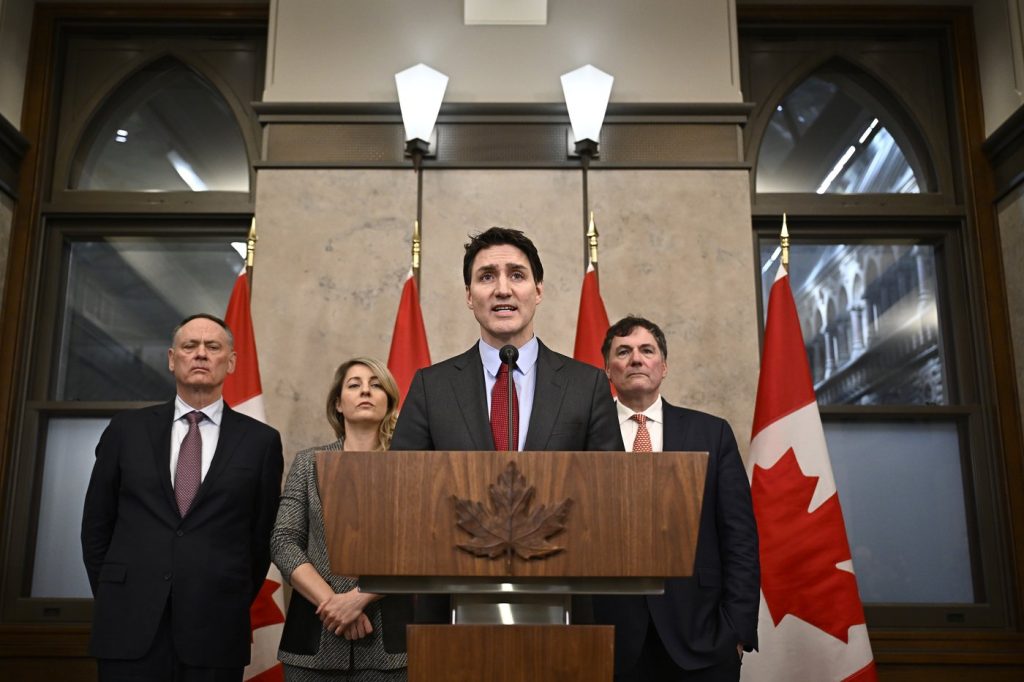OTTAWA – Prime Minister Justin Trudeau has detailed Canada’s strategy for retaliating against the United States after President Donald Trump imposed a 25 percent tariff on Canadian goods. In his announcement on Saturday night, Trudeau stated that Canada plans to implement reciprocal tariffs on approximately $155 billion worth of American products.
This decision comes amid warnings from the Trump administration that such retaliatory measures could lead to an escalation of trade tensions. Trudeau's approach is designed as a two-phase response to the U.S. tariffs, which are set to take effect on February 4, 2025.
In the first phase of the plan, Canada will impose immediate counter-tariffs targeting $30 billion in American goods starting on the same date the U.S. tariffs are initiated. Following this initial round of tariffs, Canada will prepare a second wave of more extensive tariffs over the next three weeks, affecting $125 billion in American import goods. This staggered approach aims to provide Canadian companies with time to adjust their supply chains, as rapid changes are often difficult to achieve.
Among the American products expected to be targeted are beer, wine, and bourbon, alongside fresh produce like fruits and vegetables. Retail items such as clothing, shoes, and perfumes are also included. Additional sectors highlighted for tariffs encompass consumer goods like household appliances and furniture, as well as materials like lumber and plastics. While specific details were not released immediately, the Canadian government has previously suggested that steel and ceramics could also face additional tariffs.
Canada is a vital export market for 36 U.S. states, indicating a significant interdependence between the two economies and underscoring the stakes involved in this trade dispute.
In addition to tariffs, Trudeau has urged Canadian consumers to prioritize buying domestic products in lieu of American goods. He called on citizens to select Canadian-made items while shopping, as well as to consider "staycations" to explore local travel options within Canada instead of planning vacations to the United States. Trudeau emphasized, “Now is also the time to choose Canada,” encouraging individuals to find ways to support local businesses and products.
To further bolster this initiative, Trudeau suggested alternatives such as opting for Canadian rye whiskey over Kentucky bourbon and avoiding Florida orange juice, which is notably significant in the trade context with the U.S.
Moreover, Trudeau announced that discussions are ongoing with provincial and territorial governments to explore additional non-tariff actions that Canada could take, particularly regarding exports of critical minerals and energy resources—items that are also critical to the American market. These discussions also include potential adjustments in government procurement practices to reduce reliance on U.S. companies, although specifics have not been disclosed.
This aggressive stance from the Canadian government reflects its commitment to counteract U.S. trade policies that it perceives as unfair. The upcoming months will reveal the strategies Canada employs in response to these tariffs and how they may impact the countries’ trading relationship moving forward.










